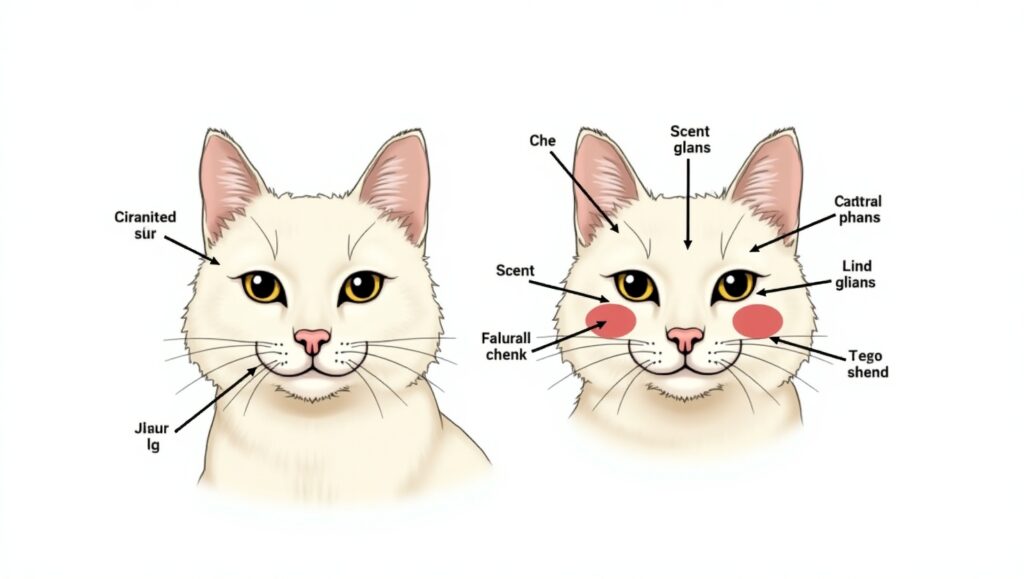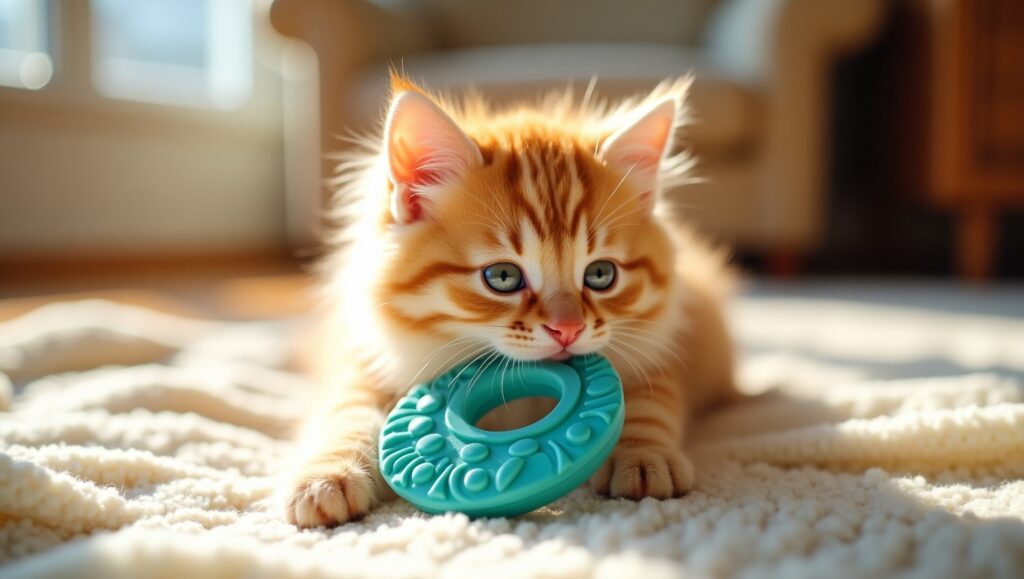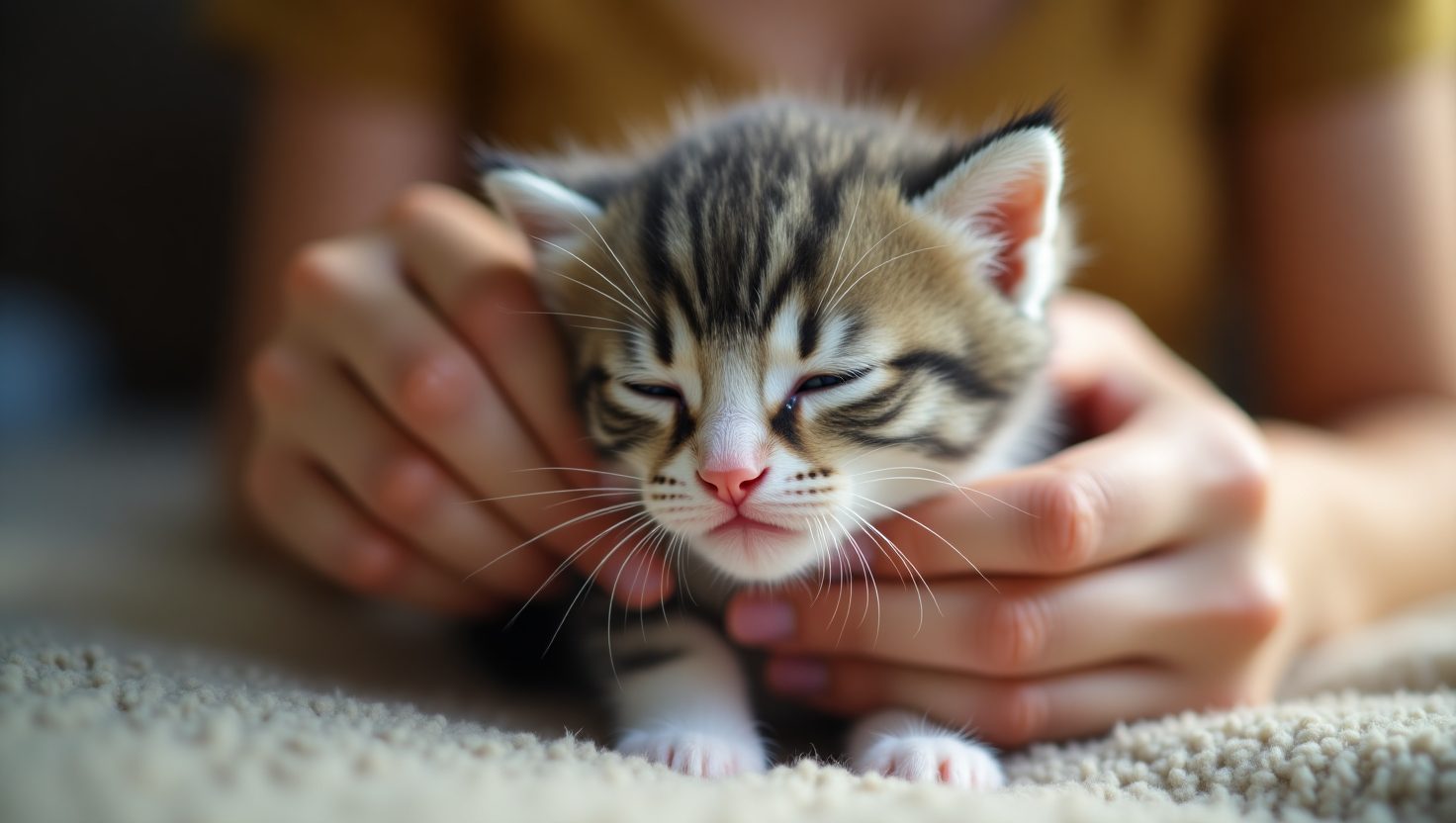Cats are mysterious creatures, and their behaviors often leave humans puzzled. One particularly endearing behavior is how much cats seem to love chin scratches. If you’ve ever watched your feline friend tilt their head up and close their eyes while you rub their chin, you’ve probably wondered why this area is so special.
The answer is rooted in feline anatomy, social bonding, and even developmental stages like teething. Understanding this behavior can deepen your relationship with your cat, especially during the kitten teething phase.
In this article, we’ll explore why cats enjoy chin scratches, how teething may influence their preferences, and what cat owners can do to support their kitten’s dental health and comfort. Whether you’re a new cat parent or a long-time feline friend, this guide will give you actionable insights into the feline mind and body.
What Are the Signs of Kitten Teething?
Before diving deeper into why cats enjoy chin scratches, it’s important to understand what they go through during teething. Just like human babies, kittens experience discomfort when their baby teeth fall out and adult teeth come in. This can make them more sensitive to touch, especially around the mouth and jaw.
Common signs of teething include:
- Drooling
- Increased chewing or biting
- Red or swollen gums
- Pawing at the mouth
- Decreased appetite
- Irritability or mood changes
These signs may make some kittens avoid touch, while others might seek it out for comfort. Chin scratches can serve as a gentle massage to ease oral discomfort, especially during the kitten teething timeline.
Kitten Teething Timeline
Baby Teeth
Kittens are not born with visible teeth. Their baby (deciduous) teeth begin to emerge around 2 to 3 weeks of age. By the time they are 8 weeks old, most kittens will have a full set of 26 baby teeth.
Kitten Teeth and Adult Cat Teeth
Between 11 to 16 weeks, kittens start losing their baby teeth as adult teeth begin to emerge. By 6 to 7 months, most cats will have all 30 permanent adult teeth in place. During this phase, they may enjoy chin scratches as a soothing sensation against jaw pain and gum inflammation.

Why Do Cats Like Chin Scratches?
There are several key reasons:
1. Scent Glands Under the Chin
Cats have scent glands located around their face, especially under the chin and cheeks. When you scratch this area, you’re helping them spread their scent, which they find comforting and enjoyable. It’s a way for them to mark you as “safe” and part of their social group.
2. Social Bonding
Chin scratching mimics mutual grooming, which is a strong bonding behavior among cats. In the wild or in multi-cat households, cats often groom each other’s faces and chins to show affection and establish trust.
3. Nerve-Endings and Pleasure Receptors
The chin area contains many nerve endings. Gentle stimulation triggers pleasure receptors, leading to a calming and enjoyable experience. This is especially comforting during the teething process.
4. Hard-to-Reach Spot
Cats can groom themselves almost everywhere, but their chins are difficult to reach. A good chin scratch helps them with hygiene and itch relief.
How to Help a Teething Kitten
Tasty Tips
If your kitten is teething and seems extra sensitive, you can:
- Offer soft, cool foods
- Refrigerate teething toys for soothing effects
- Avoid rough play involving the mouth area
- Try massaging their chin gently during cuddle sessions
Toys for Kitten Teething
Teething toys can be a lifesaver for kittens and their owners. Chewing relieves pressure and distracts from discomfort. Look for:
- Silicone or rubber chew toys
- Fabric toys soaked in water and frozen
- Catnip-infused toys for older kittens
Avoid hard plastic toys or items not intended for feline use, as they can damage teeth or become choking hazards.
What’s the Best Food for Teething Kittens?
Teething kittens may find hard kibble painful to chew. Consider switching to:
- High-quality wet kitten food
- Soaked kibble to soften the texture
- Blended or pureed meals with vet approval
Always consult your veterinarian before making major dietary changes.
Brushing a Kitten’s Teeth
Dental hygiene is critical even during the teething stage. Start early to help your kitten get used to brushing.
Tips:
- Use a soft-bristled toothbrush made for kittens
- Introduce flavored pet-safe toothpaste (never use human toothpaste)
- Begin with gentle gum massages
- Gradually introduce brushing once adult teeth have settled
Brushing helps prevent plaque buildup and gum disease, which can worsen teething discomfort.

When Do Kittens Need to See a Vet for a Dental Appointment?
A vet should evaluate your kitten’s dental health at each regular wellness checkup. However, you should seek veterinary care if you notice:
- Persistent bad breath
- Excessive drooling
- Bleeding gums
- Loose or retained baby teeth
- Difficulty eating or sudden weight loss
Early intervention ensures that any dental issues are addressed before becoming serious problems.
The Importance of Good Oral Hygiene for Kittens
Good dental care prevents:
- Periodontal disease
- Tooth loss
- Painful infections
- Costly vet procedures later in life
Establishing a brushing routine, offering the right toys, and feeding supportive diets are all essential steps.
Our Vet Team Is Here for All the New Pet How-To’s and What If’s
Whether you’re curious about chin scratches or worried about teething pain, it’s always wise to reach out to a veterinarian. Pet professionals can guide you through every stage of kittenhood with personalized care recommendations.
Final Thoughts: Why Chin Scratches Matter
Cats love chin scratches for several reasons tied to comfort, communication, and instinct. This becomes even more pronounced during kitten teething, when the area around their jaw and gums is more sensitive.
Providing gentle chin rubs, soothing toys, and soft food options not only comforts them physically but also strengthens your bond emotionally.By understanding your kitten’s needs and behaviors, you can ensure a happier, healthier, and more trusting relationship with your feline companion.
Whether your cat is a teething kitten or a full-grown adult, keep those chin scratches coming. They mean more than you think.
